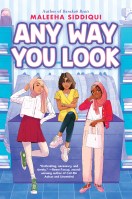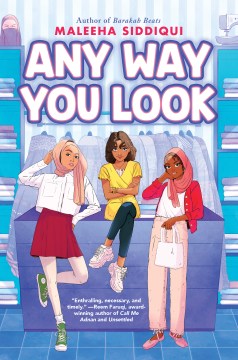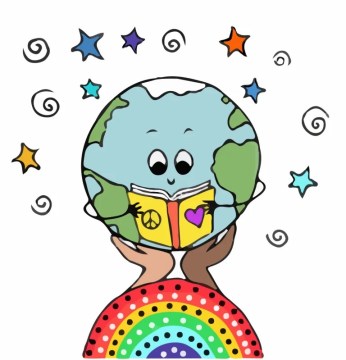
WNDMG Wednesday: Author Interview with Aida Salazar
Welcome to WNDGM Wednesday. I’m so excited to be able to introduce you and interview accomplished award-winning author Aida Salazar today. Aida’s newest book is Ultraviolet (Scholastic) and it launches on April 2, 2024.
I absolutely love anything Aida writes. I am specifically a huge fan of her verse novels- A SEED IN THE SUN and LAND OF THE CRANES made me feel so much emotion while reading, and I hung onto every word of gorgeous poetry.
I cannot wait to dive into this new book!
I encourage everyone to buy a copy for themselves and their classrooms and libraries.
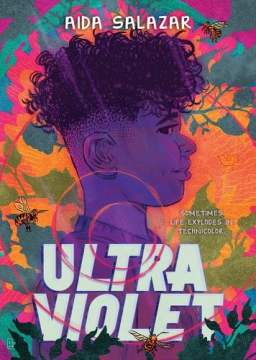
About ULTRAVIOLET
Description taken from online:
Sometimes life explodes in technicolor.
In the spirit of Judy Blume, award-winning author Aida Salazar tells it like it is about puberty, hormones, and first love in this hilarious, heartwarming, and highly relatable coming-of-age story. Perfect for fans of Jason Reynolds, Kwame Alexander, and Adib Khorram.
* “Stunning…A story that sings to the soul.” ―Kirkus Reviews, starred review
* “A compassionate verse novel about first love, heartbreak, and vulnerability. ” ―Publishers Weekly, starred review
“This important and intensely relatable tale perfectly captures the angst of growing up. A true gift to maturing tweens everywhere.” ―Ernesto Cisneros, Pura Belpré award-winning author of Efrén Divided
For Elio Solis, eighth grade fizzes with change―His body teeming with hormones. His feelings that flow like lava. His relationship with Pops, who’s always telling him to man up, the Solis way. And especially Camelia, his first girlfriend.
But then, betrayal and heartbreak send Elio spiraling toward revenge, a fight to prove his manhood, and defend Camelia’s honor. He doesn’t anticipate the dire consequences―or that Camelia’s not looking for a savior.
Hilarious, heartwarming, and highly relatable, Ultraviolet digs deep into themes of consent, puberty, masculinity, and the emotional lives of boys, as it challenges stereotypes and offers another way to be in the world.
Interview with Aida:
I loved getting to talk to Aida about her new book and I think you will enjoy meeting her and Elio as well.
SSS: What a heartfelt description! I was intrigued right away- and I cannot wait to see how Elio’s story unfolds.
What is the inspiration behind ULTRAVIOLET?
AS: The initial idea for the book came from my son, João, and his friend, Mario, who after I’d written about a Latina girl’s coming of age in The Moon Within, insisted that I write one from a boy’s perspective. Mario said, “Ms. Aida, you have to write The Sun Within.” “Yeah, mom, when are you going to write a book for me?” my son added. They wanted to see a book that showed their inner lives and brought up conversations about puberty, first crushes, gender, and rites of passages—conversations that echoed who they were as cis Latino boys.
SSS: As a mom of an almost-teenage boy, I am so protective over him. He is such a sweet emotional boy, and I love that the description honors the emotions of young boys. What emotions do you think young men feel as they grow into maturity?
AS: Our patriarchal societies have made boys victims as much as girls and women and gender expansive people. We don’t allow boys space to explore the tender parts of themselves – love, anger, rejection, grief, and hormonal confusion. They are raised to bury feelings—to be “macho” and “man up.” We rarely provide safe spaces and ways for them to move through tough feelings or offer guidance on how to rise above them. It is a huge tragedy, really. When boys deny this very human part of themselves, it deeply impacts their relationships as they grow into men. And in that loss, in that wound, they sometimes treat others with the same hurt they feel or worse. Girls and women often bear the brunt of that wound, as we have seen by the violence and wars in our society today. Through Ultraviolet, I want to offer boys examples of undoing toxic masculinity and how they can find strength through nurturing their sensitivity and vulnerability.
SSS: I love your answer! As a mom of a young tween who is Syrian American, I worry about how the world will view my little boy, especially with stereotypes about Muslims and Arabs. As a Latine author, does your role as a mother play a part in the stories you write? How does Elio’s book play out differently than it would for someone who was not Latine?
AS: Absolutely. I have a teen son and daughter and their lives as bi-cultural, multi-racial youth inspire me. What they have to deal with as young people is unprecedented in the history of humanity because of technology and as our racism and intolerance grows. Brown and Black children and other kids of color in particular are ever more vulnerable. But I do believe in the power of education, collective organizing, and efforts to make the world a better place. Young people have a strong moral compass and I only hope that is going to be the guide that will help them not only navigate but rise above and help solve some of the most troubling issues in the world. And some things, like love, heartbreak, and puberty are evergreen. I am hopeful that the universal experiences like those found in Ultraviolet will help boys (no matter the background) understand their hearts and where they might contribute to their own and others healing through justice.
SSS: The subject of puberty is such an important topic! I am excited to see more books centering these important coming of age stories for our young ones who may feel confused as their body’s changes.
AS: Indeed! There are only a handful of books like Ultraviolet. I had a conversation with Varian Johnson and John Schu at a conference about the need for a book like this. There was so much to explore in middle grade fiction and so much of it was hilarious! I challenged them to write one because I felt like it needed to come from a boy/man’s perspective. I think John might have a memoir coming which sounds beautiful. But when my son and his friend specifically asked me for it, I knew I couldn’t say no. This one, is my interpretation of a boy’s life as a mother and feminist.
SSS: Will there be more Elio (or other middle grade verse novels) in the future?
AS: Yes! I have a secret project that might involve Elio and might involve another character from another of my books. Writing these characters are pure joy. I know them so well and can’t wait to write them a new narrative with new adventures in growing up. Of course, in verse!
SSS: Ahhh! Amazing- I cannot wait!!
Writing Process
SSS: When did you start writing Ultraviolet and was the process a long one?
AS: Ultraviolet was actually a graphic novel before it was a verse novel. I made the move on the suggestion of my editor at Scholastic, Tracy Mack. I struggled to transition from one to the other but then I gave it a shot. Once I wrote the opening poem, I was hooked on Elio’s voice and couldn’t stop. I wrote the first draft in about three months but the editing process took another six months. We worked hard to get the story as clear, as fun, as poetic as can be.
SSS: Wow so interesting!
As a fellow middle grade verse novelist, I LOVE reading verse. How do you write your verse books- do they start out as verse in your mind while you write, or do they end up that way along the revision process (as happened with me!)
AS: Yes, the characters come in verse and stay that way. I am a student of Linda Sue Park’s philosophy of writing voice in fiction. She says that “voice is word choice, rhythm, and punctuation.” I explore this wisdom from a poet’s perspective. Writing poetry gives us all the tools we need to articulate these elements of voice with an extra layer of artfulness and intention. For instance, rhythm or the song or musicality of a line is crucial to poetry. Many fiction writers don’t think about this as deeply as poets. Also, poetry needs for us to use precise and economic language. To make a line artful. How you do that is what will set the voice apart. I try to make it so that each character can be their own person, with their own artful word choice, with their own song, certainly not mine or an adult’s, so they emerge as their own poet.
SSS: One hundred percent- poetry is so special and the voice in your books always stands out beautifully!
Any advice for fellow middle-grade authors? For Debuts?
AS: Lean on community, be tenacious, be okay to fail or be rejected, and give yourself grace. These things have made me continue in this business when times have been tough. Onward!
For more verse novels- check out this previous Mixed-Up-Files Post!
Bonus!
SSS: Bonus question! Is there anything I haven’t asked that you’d like to share with us?
AS: Ultraviolet though it might seem a light-hearted and somewhat superficial experience, really is about undoing so many hurtful practices. It takes a look at the reasons why we hurt others. There is a line in the book by Fernando, one of the leaders of the sons and fathers’ group that urges Elio to reflect when he wants to lash out against his ex-girlfriend, “Just because someone hurts you doesn’t mean you have to hurt them back.” I think about the relevance of this line and the current genocide of Palestinian people by Zionists. It is my hope that young people will understand that our wounds, as deep as they are, will never be resolved with violence. My intention was to write a feminist book for boys, to dismantle and free ourselves from these oppressive patriarchal ideas.
Thank you so much Aida for answering my questions and with such thoughtfulness and honesty! I hope everyone picks up a copy of your beautiful book.
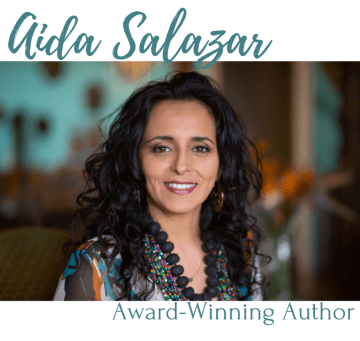
About Aida Salazar:
Aida Salazar is an award-winning author and arts activist whose writings for adults and children explore issues of identity and social justice. She is the author of the middle-grade verse novels The Moon Within (International Latino Book Award Winner), Land of the Cranes (Américas Award Winner), A Seed in the Sun (Tomás Rivera Book Award), the picture book anthology, In the Spirit of a Dream, and the picture book biography Jovita Wore Pants: The Story of a Mexican Freedom Fighter (Caldecott Honor). She lives with her family of artists in Oakland, California.
Website: www.AidaSalazar.com
Twitter: @aida_writes
Instagram: @aida_writes
TikTok: @aida_writes
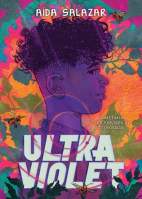

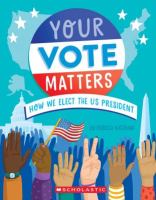 Your Vote Matters: How we elect the US President by Rebecca Katzman, illustrated by Ellen Duda is a short and highly illustrated overview of how the US government is structured, how our democracy works, and the presidential election process. Obviously this book is very timely. It’s an accessible resource for 7 to 10 year olds. If you are looking for a more in-depth book for the older end of middle grade or young adult readers please try You Call This Democracy: How to fix our government and deliver power to the people by Elizabeth Rusch. You may have missed this one the first time around because it came out in 2020. It’s very well researched and engagingly written.
Your Vote Matters: How we elect the US President by Rebecca Katzman, illustrated by Ellen Duda is a short and highly illustrated overview of how the US government is structured, how our democracy works, and the presidential election process. Obviously this book is very timely. It’s an accessible resource for 7 to 10 year olds. If you are looking for a more in-depth book for the older end of middle grade or young adult readers please try You Call This Democracy: How to fix our government and deliver power to the people by Elizabeth Rusch. You may have missed this one the first time around because it came out in 2020. It’s very well researched and engagingly written.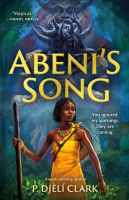 Abeni’s Song by P. Djèlí Clark is a “chosen one” fantasy story set in West Africa. Abeni’s whole village is spirited away by magical forces and sent on ghost ships to distant lands. Abeni is captured by a witch and learns about her mission to return her people home. This first in a series is sure to spark conversation about the African diaspora. P. Djèlí Clark has written extensively in the adult speculative fiction sphere. This is his first book for young readers.
Abeni’s Song by P. Djèlí Clark is a “chosen one” fantasy story set in West Africa. Abeni’s whole village is spirited away by magical forces and sent on ghost ships to distant lands. Abeni is captured by a witch and learns about her mission to return her people home. This first in a series is sure to spark conversation about the African diaspora. P. Djèlí Clark has written extensively in the adult speculative fiction sphere. This is his first book for young readers.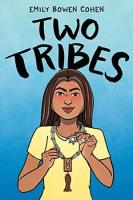 Two Tribes by Emily Bowen Cohen is about a girl named Mia who is preparing for her Bat Mitzvah. She’s also coming to more deeply understand the Muscogee side of her heritage. I love how frankly and bravely Mia address people who treat her heritage unkindly. This one is a graphic novel. There is a glossary in the back for the handful of Muscogee words in the text. This is Emily Bowen Cohen’s debut, and I certainly hope we will see more from her. It has won the School Library Journal Best Book, National Jewish Book Award, and the New York Public Library’s Best Books for Kids award.
Two Tribes by Emily Bowen Cohen is about a girl named Mia who is preparing for her Bat Mitzvah. She’s also coming to more deeply understand the Muscogee side of her heritage. I love how frankly and bravely Mia address people who treat her heritage unkindly. This one is a graphic novel. There is a glossary in the back for the handful of Muscogee words in the text. This is Emily Bowen Cohen’s debut, and I certainly hope we will see more from her. It has won the School Library Journal Best Book, National Jewish Book Award, and the New York Public Library’s Best Books for Kids award.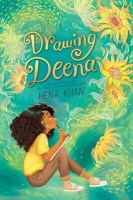 I am the only person in my family who makes a living at the arts. Even though I was over 30 yrs old when I started, my dad was so nervous about my prospects, not because he didn’t want me to be a writer, he just didn’t understand anything about how careers in the arts worked. So I felt a kinship with Drawing Deena by Hena Khan. It’s about a girl who longs to be an artist. She struggles to make her family understand what art means to her and how it can be as practical a path as any to career success.
I am the only person in my family who makes a living at the arts. Even though I was over 30 yrs old when I started, my dad was so nervous about my prospects, not because he didn’t want me to be a writer, he just didn’t understand anything about how careers in the arts worked. So I felt a kinship with Drawing Deena by Hena Khan. It’s about a girl who longs to be an artist. She struggles to make her family understand what art means to her and how it can be as practical a path as any to career success.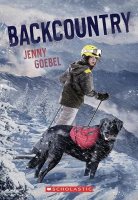 Backcountry by Jenny Goebel is about a young athlete who is diabetic and has a diabetic alert dog. This thriller follows their adventure when they get lost in the snow in the backcountry. Most disability narratives focus more on the physical side and I see medical disability less often–though No Matter the Distance by Cindy Baldwin, about a girl with Cystic Fibrosis, is really well done. I liked how Jenny Goebel’s book delves into how differently Emily is treated as an athlete when people know she is diabetic even though nothing about her athletic performance has changed. (Scholastic)
Backcountry by Jenny Goebel is about a young athlete who is diabetic and has a diabetic alert dog. This thriller follows their adventure when they get lost in the snow in the backcountry. Most disability narratives focus more on the physical side and I see medical disability less often–though No Matter the Distance by Cindy Baldwin, about a girl with Cystic Fibrosis, is really well done. I liked how Jenny Goebel’s book delves into how differently Emily is treated as an athlete when people know she is diabetic even though nothing about her athletic performance has changed. (Scholastic)